Filter by

Warping Time
Warping Time shows how narratives of the past influence what people believe about the present and future state of the world. In Benjamin Ginsberg and Jennifer Bachner’s simple experiments, in which the authors measured the impact of different stories their subjects heard about the past, these “history lessons” moved contemporary policy preferences by an average of 16 percentage points; fo…
- Edition
- -
- ISBN/ISSN
- 9780472076000
- Collation
- xiii, 158 p
- Series Title
- -
- Call Number
- -

The spectral arctic : a history of dreams and ghosts in polar exploration
Visitors to the Arctic enter places that have been traditionally imagined as otherworldly. This strangeness fascinated audiences in nineteenth-century Britain when the idea of the heroic explorer voyaging through unmapped zones reached its zenith. The Spectral Arctic re-thinks our understanding of Arctic exploration by paying attention to the importance of dreams and ghosts in the quest for the…
- Edition
- -
- ISBN/ISSN
- 9781787352450
- Collation
- 326p. : ill
- Series Title
- -
- Call Number
- 919.8 SHA s
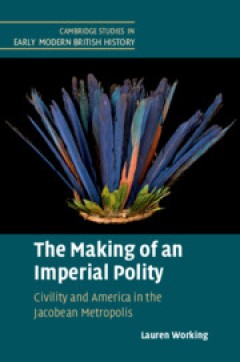
The Making of an Imperial Polity : Civility and America in the Jacobean Metro…
Bringing to life the interaction between America, its peoples, and metropolitan gentlemen in early seventeenth-century England, this book argues that colonization did not just operate on the peripheries of the political realm, and confronts the entangled histories of colonialism and domestic status and governance. The Jacobean era is reframed as a definitive moment in which the civil self-prese…
- Edition
- -
- ISBN/ISSN
- 9781108625227
- Collation
- xiv, 270 p ; ill
- Series Title
- -
- Call Number
- 970.02 MAK L
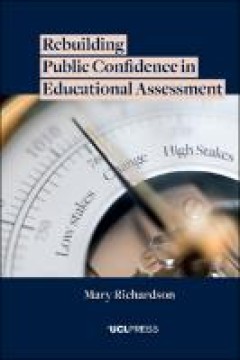
REBUILDING PUBLIC CONFIDENCE IN EDUCATIONAL ASSESSMENT
Educational assessment is important. But in the twenty-first century it is easy to feel that schooling and other phases of education are shaped entirely by certain assessments, and that assessment is only about exam results. The idea that test grades can accurately describe the aims and outcomes of education is unfair and reductive. Yet it is a pervasive and persuasive discourse. This book is a…
- Edition
- 3
- ISBN/ISSN
- 9781787357242
- Collation
- xii, 135p.; ill.
- Series Title
- -
- Call Number
- 371.26 REB r

Sensational internationalism : the Paris Commune and the remapping of America…
In refocusing attention on the Paris Commune as a key event in American political and cultural memory, Sensational Internationalism radically changes our understanding of the relationship between France and the United States in the long nineteenth century.
- Edition
- -
- ISBN/ISSN
- 9781474411226
- Collation
- xii, 240 p. : ill.
- Series Title
- -
- Call Number
- 970.980 COG s
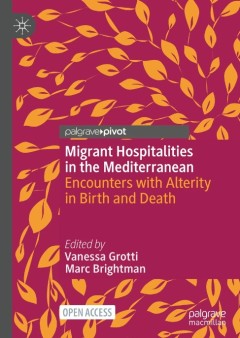
Migrant hospitalities in the mediterranean : encounters with alterity in birt…
This open access book applies insights from the anthropology of hospitality to illuminate ethnographic accounts of migrant reception in various parts of the Mediterranean. The contributors ground the idea and practice of hospitality in concrete ethnographic settings and challenge how the casual usage of Derridean or Kantian notions of hospitality can blur the boundaries between social scales an…
- Edition
- -
- ISBN/ISSN
- 9783030565855
- Collation
- x, 139 p. ; ill
- Series Title
- -
- Call Number
- 304.8 GRO m
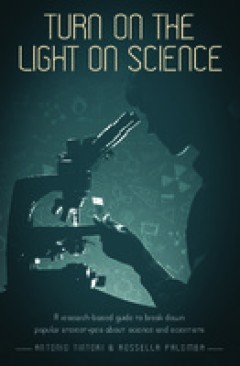
Turn on the light on science : a research-based guide to break down popular s…
"Scientists deserve public recognition. The ways that they are depicted, however, are severely limited in physical and personal traits, helping to establish and enhance stereotypes under the general title of ‘scientist’. These stereotypes range from the arrogant researcher who wants to rule the world, to the lab coat wearing ‘nerdy’ genius, but all generally fall to an extreme view of a…
- Edition
- -
- ISBN/ISSN
- 9781911529057
- Collation
- xvi, 103p.
- Series Title
- -
- Call Number
- 509 TUR t

The right-wing critique of Europe : nationalist, souverainist and right-wing …
The Right-Wing Critique of Europe analyses the opposition to the European Union from a variety of right-wing organisations in Western, Central and Eastern Europe. In recent years, opposition to the processes of globalisation and the programme of closer European integration, understood as a threat to the sovereignty of individual member states, has led to an intensification of Eurosceptic sentim…
- Edition
- 2
- ISBN/ISSN
- 9781003226123
- Collation
- x, 290 p. : ill.
- Series Title
- -
- Call Number
- 341.2422 SON t

Re-imagining Japan after Fukushima
"The 2011 Tōhoku earthquake, tsunami and Fukushima nuclear disaster (collectively referred to as ‘3.11’, the date of the earthquake), had a lasting impact on Japan’s identity and global image. In its immediate aftermath, mainstream media presented the country as a disciplined, resilient and composed nation, united in the face of a natural disaster. However, 3.11 also drew worldwide atten…
- Edition
- -
- ISBN/ISSN
- 9781760463540
- Collation
- ix, 163 p.
- Series Title
- -
- Call Number
- 952.04 MIH r
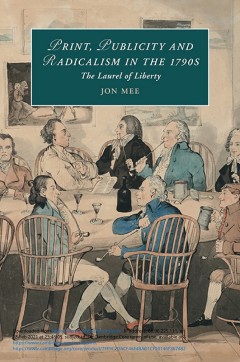
Print, publicity, and popular radicalism in the 1790s : the laurel of liberty
Jon Mee explores the popular democratic movement that emerged in the London of the 1790s in response to the French Revolution. Central to the movement's achievement was the creation of an idea of 'the people' brought into being through print and publicity. Radical clubs rose and fell in the face of the hostile attentions of government. They were sustained by a faith in the press as a form of 'p…
- Edition
- -
- ISBN/ISSN
- 9781316459935
- Collation
- xiii, 272p. : ill.
- Series Title
- -
- Call Number
- 302.232094109033 MEE p
 Computer Science, Information & General Works
Computer Science, Information & General Works  Philosophy & Psychology
Philosophy & Psychology  Religion
Religion  Social Sciences
Social Sciences  Language
Language  Pure Science
Pure Science  Applied Sciences
Applied Sciences  Art & Recreation
Art & Recreation  Literature
Literature  History & Geography
History & Geography